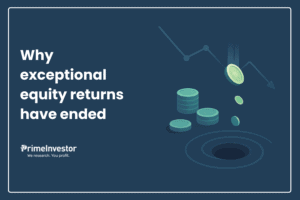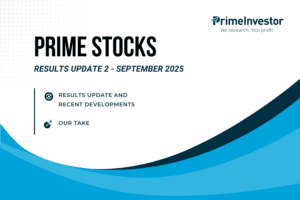In India, the best of companies can be tripped up by regulatory intervention. This is what prompted us to change our Buy call on the stock of Coromandel International, one of India’s leading fertilizer and agri-input makers, to a Sell. Since our Buy on January 14 2021 at a price of Rs 822, the stock has delivered a 23.5% return, outperforming the index return of 20.4%.

While we continue to like Coromandel as a well-governed and shareholder-friendly company that has displayed great resourcefulness in navigating the highly regulated fertiliser and agri-inputs industry, the Indian government is making it harder than ever before for efficient private sector players such as Coromandel to eke out a profitable existence in the fertilizer industry.
Our call to exit the stock and realise the profits earned is triggered by the regulatory developments that squeeze the growth potential.
Detailed reasoning
#1 Ban on branding
On 25 August 2022, the Ministry of Fertilizers notified new rules that require all domestic fertilizer manufacturers to discontinue their individual branding and sell fertilisers only under the single brand name of ‘Bharat’. All fertiliser bags will carry an official logo of Pradhan Mantri Janurvarak Pariyojna. These new rules, which will take effect from October 2 2022, even go so far as to specify that 2/3rd of each fertilizer bag will display the logo of this government scheme, with the name of the company and grade of fertilizer relegated to one-third of the bag. We view this move as significantly hobbling the growth prospects for players such as Coromandel for three reasons.
- With the white labelling of all fertilizer products, Coromandel will no longer be able to leverage on its long-established Gromor brand to expand or retain its market share.
- With every fertilizer bag likely to be branded as ‘Bharat’, Coromandel will have limited room to improve either its product mix or profit margins in future by launching new combinations of NPK nutrients.
- With the Government practically nationalising fertilizer production through this move and also reviving old public sector units to produce commoditised products, hopes of any reforms in the industry in the form of price decontrol that can endow players with better pricing power or direct transfer of subsidies to farmers, have been more or less dashed. This move sends the signal that the Government is quite happy to bear almost the entire cost of production of fertilizers as long as it can claim credit for this as a welfare measure. This is negative for efficient private players such as Coromandel.
#2 Rising subsidy dependence
A high dependence on subsidy-driven businesses is a negative for Indian agri-input makers because subsidy payouts from the Centre usually come with lags that cause working capital problems. Coromandel in recent years has made conscious efforts to shift its product mix from the subsidy-driven fertilizers to non-subsidy reliant crop protection chemicals and nutrients through an organic and inorganic growth strategy.
But in recent times, the subsidy component in domestic fertilizers has shot through the roof on the multifold escalation in the prices of global inputs from natural gas to ammonia to phosphoric acid and sulphur due to supply disruptions caused by the Russia-Ukraine conflict and China’s slowdown. The Government has responded by sharply hiking its subsidy component for both urea and ‘decontrolled’ fertilizers, but hasn’t allowed manufacturers any leeway to hike their selling prices.
This has effectively ensured that, currently, Indian fertilizer makers depend on the Government for subsiding a whopping 90% of the production cost of urea, over 60% for DAP and other grades of NPK. Such high subsidy dependence, taken with complete lack of pricing power, can aggravate working capital problems for players in the months ahead.
Yes, in the medium term, Coromandel International may very well find ways around these curbs, by scaling down its domestic fertilizer operations and expanding its non-subsidised agri-input businesses. It certainly has the marketing mojo and expertise to do this. But with subsidy-driven businesses accounting for over 75% of current revenues and 74% of EBIDTA (Q4 FY22), this shift in product mix will take time.
The fact that recent Government policy actions in this highly regulated industry are moving towards higher controls and restrictions, prompts us to shift our bets to less regulated segments of agri inputs. We would prefer that investors take their profits in the stock before these regulatory risks play out.
Disclosures and Disclaimers
The following Disclosures are being made in compliance with the SEBI Research Analyst Regulations 2014 (hereinafter referred to as the Regulations).
1. PrimeInvestor Financial Research Pvt Ltd is a SEBI-Registered Research Analyst having SEBI registration number INH200008653. PrimeInvestor Financial Research Pvt Ltd, the research entity, is engaged in providing research services and information on personal financial products. This Research Report (called Report) is prepared and distributed by PrimeInvestor Financial Research Pvt Ltd with brand name PrimeInvestor.
2. PrimeInvestor Financial Research Pvt Ltd, its partners, employees, directors or agents, do not have any material adverse disciplinary history as on the date of publication of this report.
3. We, PrimeInvestor Research Team, author/s and the name/s in this report, hereby certify that all of the views expressed in this research report accurately reflect my/our views about the subject issuer(s) or securities. I/We also certify that no part of my/our compensation was, is, or will be directly or indirectly related to the specific recommendation(s) or view(s) in this report. I/we or my/our relative or PrimeInvestor Financial Research Pvt Ltd do not have any financial interest in the subject company. I/we or my/our relative or PrimeInvestor Financial Research Pvt Ltd do not have beneficial ownership of 1% or more in the subject company at the end of the month immediately preceding the date of publication of the Research Report. I/we or my/our relative or PrimeInvestor Financial Research Pvt Ltd do not have any material conflict of interest. I/we have not served as director / officer, etc. in the subject company in the last 12-month period.
4. We, analysts at PrimeInvestor Research Team, hold this stock as part of my investment portfolio. I/ analysts in the Company have not traded in the subject stock thirty days preceding this research report and will not trade within five days of publication of the research report as required by regulations.
5. PrimeInvestor Financial Research Pvt Ltd has not received any compensation from the subject company in the past twelve months. PrimeInvestor Financial Research Pvt Ltd has not been engaged in market making activity for the subject company.
6. In the last 12-month period ending on the last day of the month immediately preceding the date of publication of this research report, PrimeInvestor Financial Research Pvt Ltd has not received compensation or other benefits from the subject company of this research report or any other third-party in connection with this report.



